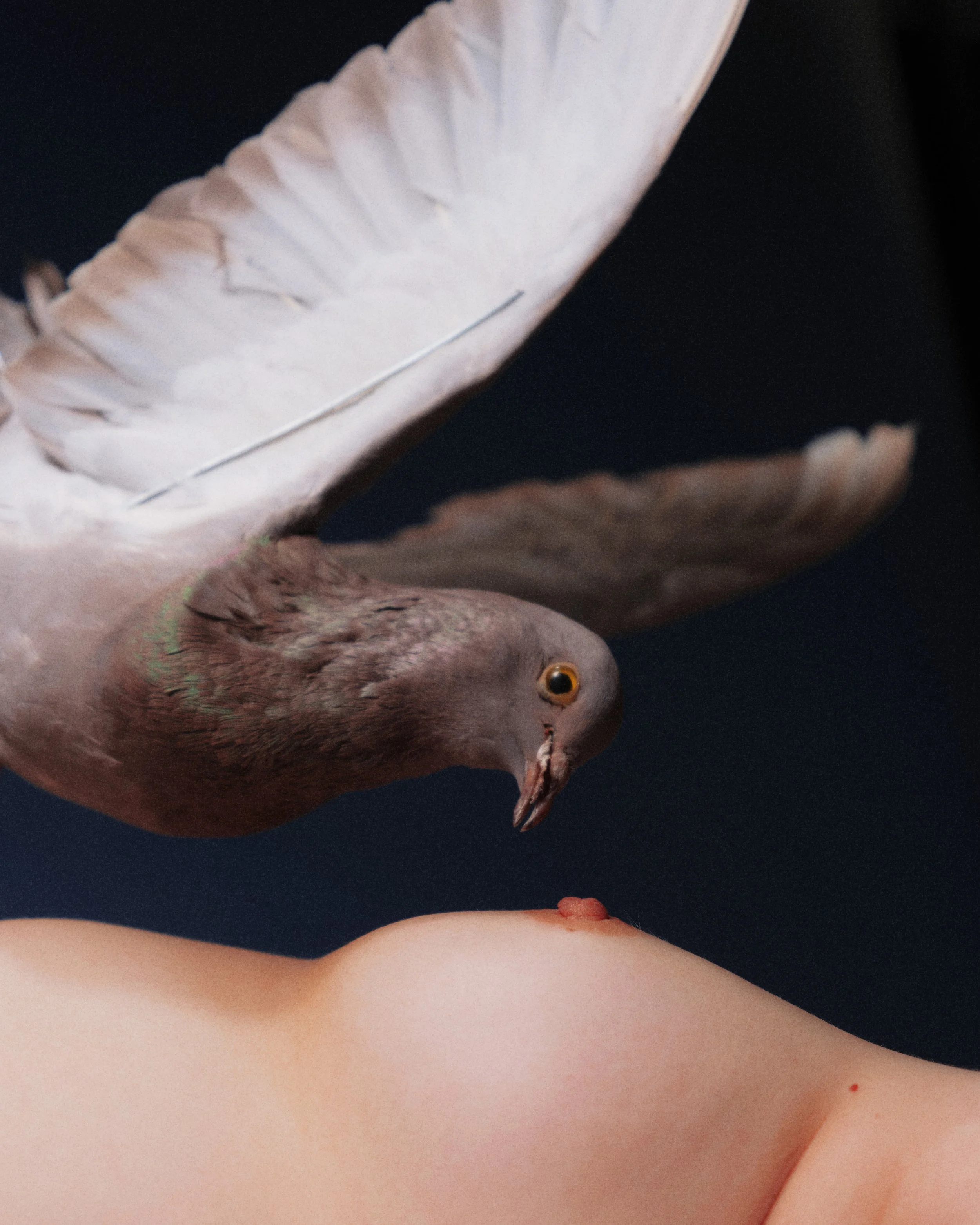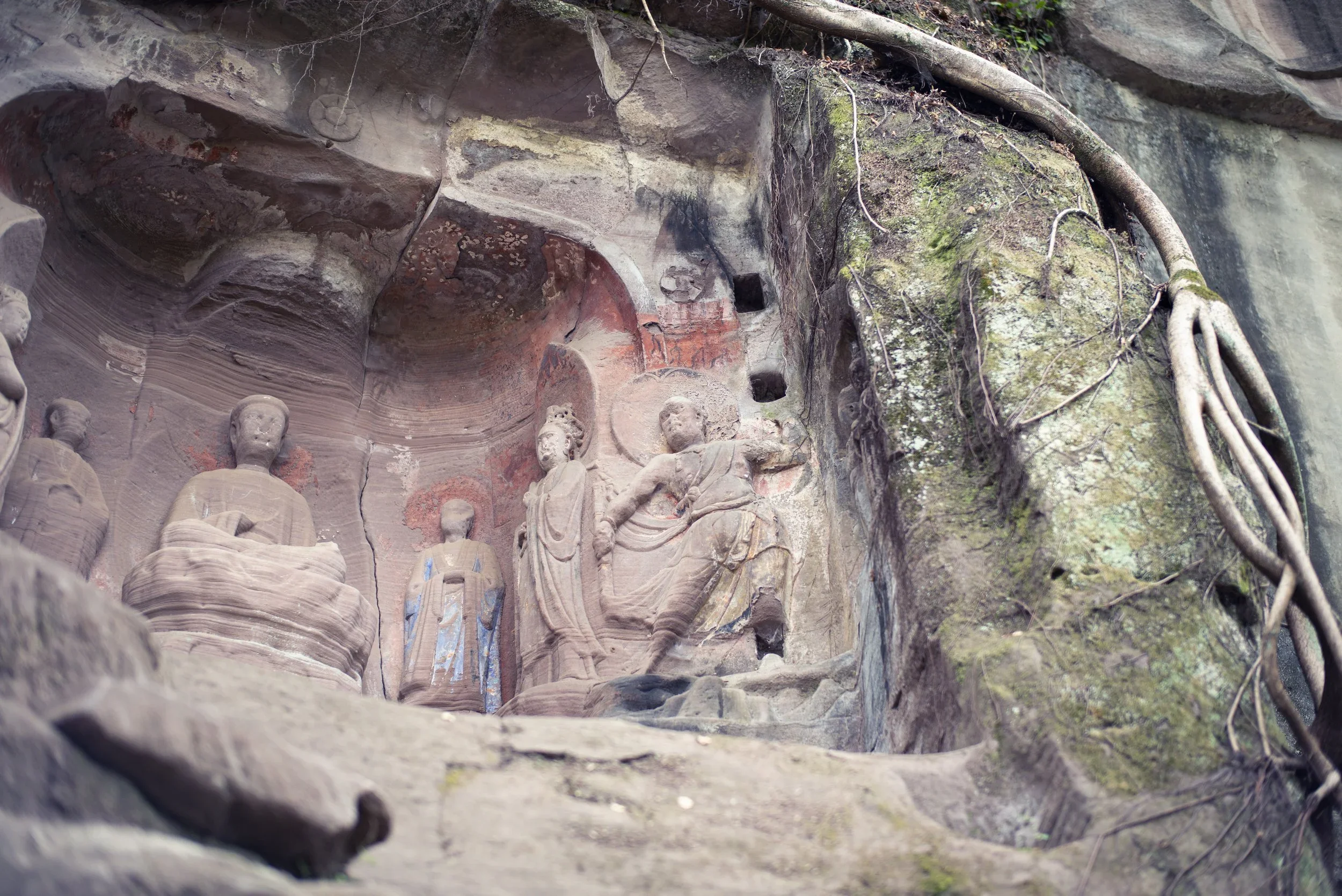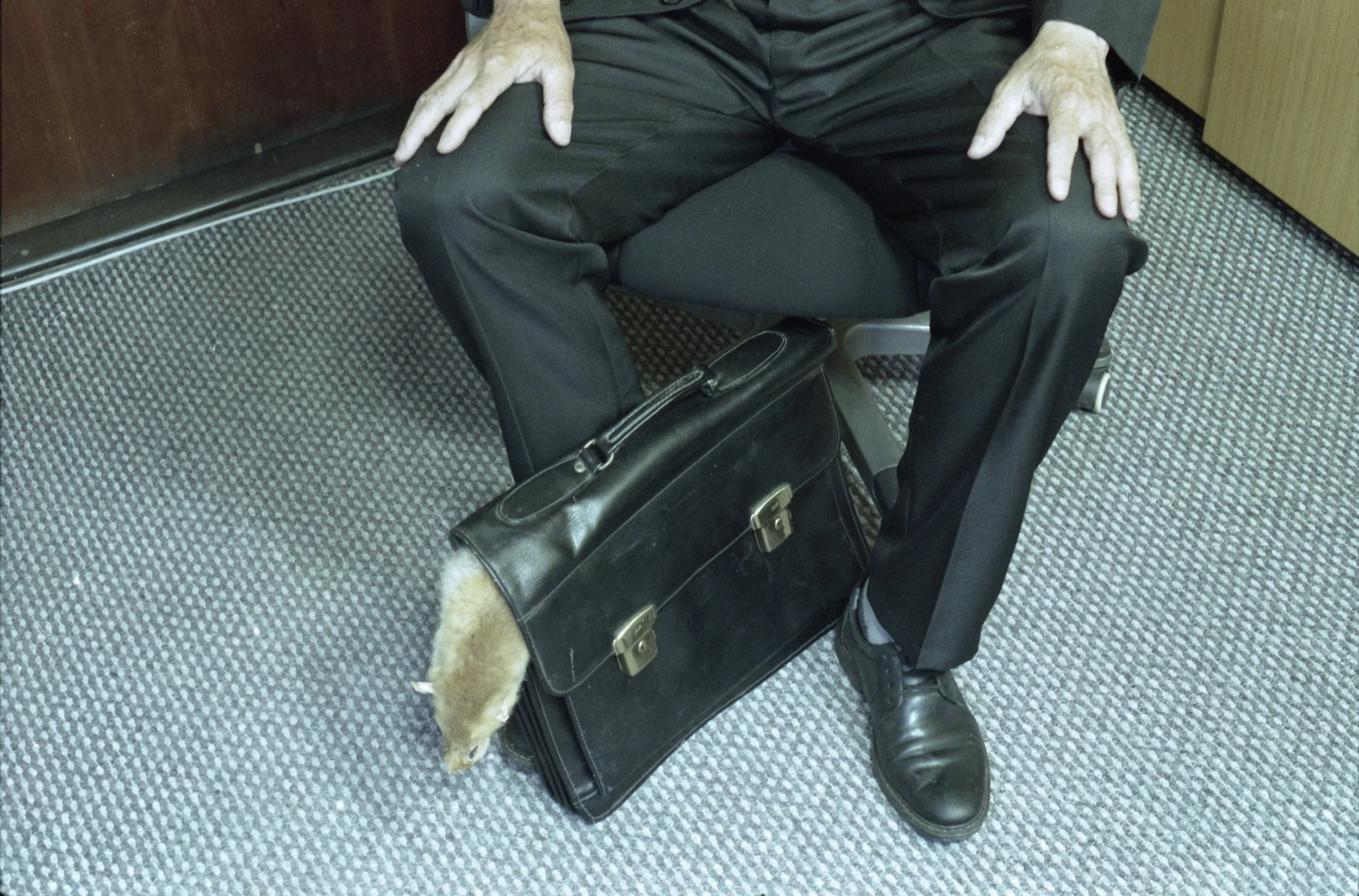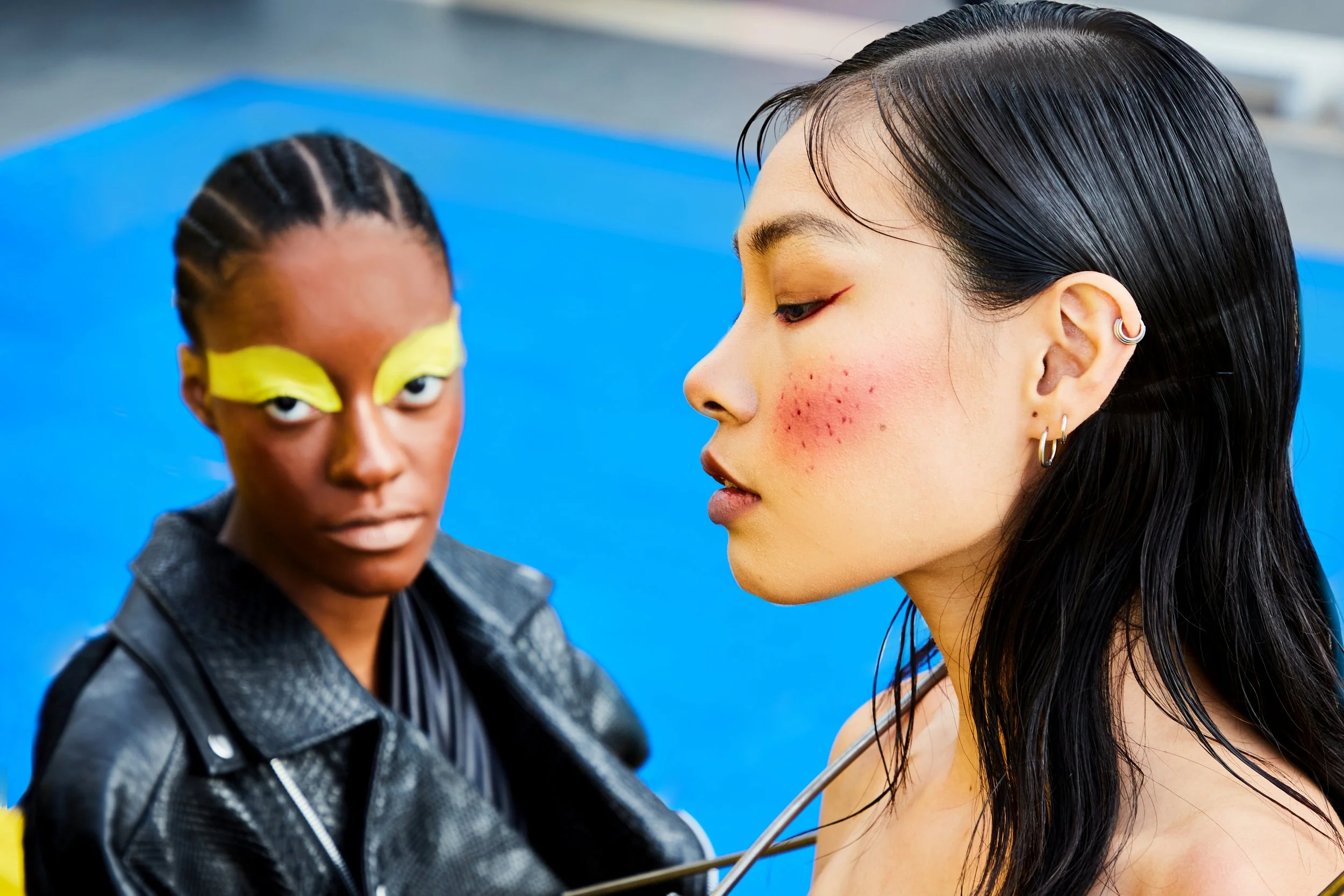10 Questions with Hua Huang
Huang Hua is a Chinese photographer and media expert, currently based in Europe. He moved to Greece in 2018, then moved to Germany in July 2022.
He has published three photo books, <ATHENS IN THE SHADOW>,<WILD BEIJING> and <Moments and Eternities on The Streets>. In addition, his photographs and photo essays have been published in Financial Times Chinese, New Age Photography Magazine, The Purposeful Mayonnaise, and Artron.net (The most influential art media group in China). In recent years, he has participated in dozens of art exhibitions in the United States, Germany, China, Japan, Italy, Greece, and other countries and has been selected as a monthly recommendation by DER GREIF(the famous contemporary photography organization based in Munich, Germany).
Hua Huang - Portrait
ARTIST STATEMENT
Due to his life experience, Hua Huang is interested in Eastern mysticism culture and is sensitive to the so-called "truth" of society and the "hollowing out" of the individual due to his more than 20 years of mass media career. Therefore, Hua Huang mainly catches the meteoric "truth" fragments from the dazzling world to reflect the anxiety, indifference, and hollowing out of the current society. At the same time, he examines the illusory nature of the world around him through the eyes of a Buddhist.
In the past two years, because of the epidemic, Huang Hua has begun to focus more on the existence of individuals in the family and the isolation of individuals from society. Mainly through monochrome photography, he shows the alienation of individuals in a fickle life.
The power of ten seconds, Photography, 92x46 cm, 2019 © Hua Huang
INTERVIEW
First of all, introduce yourself to our readers. Who are you, and how did you start experimenting with images?
As a photographer, I have published three documentary photography photobooks (<Athens in the Shadow>,<Wild Beijing>,<Street Moments and Eternity> ). As a writer, I have published lots of articles with more than one million words (mostly as a journalist), and I've also worked as an online exhibition curator. I am a Buddhist and vegetarian who meditates every day.
I started taking photos in 2001 when I was an editor at the economic newspaper, and then I took press conferences and exhibitions. I started taking tourism photos and landscape photos in 2013, and in 2015 I started to focus on documentary photography.
How would you define yourself as an artist?
All artists around the world will more or less imitate other famous artists before they become famous, especially photographers. Because it is really difficult to innovate in photography, and I have no interest in those photographs with pure visual beauty. So I not only don't care about cameras and other types of equipment, but I also don't care about landscape and fashion photography because those works will make a photographer indulge in visual beauty.
Therefore, my current works deliberately do not pursue exquisite or visual aesthetics. I really want my photographs to be evocative to the public, or make them smile because they've seen this scene too, but they haven't thought about the point.
A view outside the Firca Venetian Fortress, Photography, 42x28 cm, 2019 © Hua Huang
You have been living in Europe for a while, how has this influenced your work?
To be honest, even though I have lived in Europe for many years, I still prefer the style of Japanese photography, and my photographs have been influenced by Japanese photography. Of course, because I live in Europe, the objects in my shots are all Europeans, and Chinese people rarely appear through my lens. In addition, the multiculturalism of Europe is more different from that of China. As a Chinese photographer, the multiculturalism of Europe itself is a common but very important subject for me.
Can you tell us about the process of creating your work? What is your artistic routine when working?
My photography art started with street photography because every dynamic moment on the street made me excited. Gradually, my camera not only focuses on the streets but also on my life, especially on my family. The photographic work, "The Gua Sha Treatment Pop", was produced at the beginning of the pandemic. I have undergone several traditional Chinese medical therapy named the Gua Sha Treatment with my illness for many years, and the process of this treatment will be difficult to accept for westerners. But this is a real Chinese medical therapy that has existed for thousands of years and is nowadays still in use. It deeply affects most Chinese people. This kind of content is presented in the way of Pop art, which has completely not only broken away from a simple record of traditional Chinese medical therapy but also as a condensed fragment of my life.
Generally, I only shoot scenes or moments in which I am interested. Recently, I am also consciously looking to shoot scenes for a subject that I am advancing, such as "the End of Facemasks". It is mainly to show the attitude of western society towards the pandemic from the perspective of how Europeans deal with the used facemasks.
I frequently process my photographs to monochrome and rarely make too many adjustments.
Athenians watching a fighter jet air show, Photography, 34x50 cm, 2019 © Hua Huang
New shoots on an old lemon tree, Photography, 30x46 cm, 2021 © Hua Huang
How much planning goes into each series of works?
Before I start a new series, I often think very little about the number of photographs. I just go to shoot and shoot. Then, when I feel that I can't shoot any fresh things anymore, I will say to myself, ok it's time to stop and check it, then I will change to another subject.
In fact, out of my three photobooks, <Athens in the Shadow> is formed from two and a half years of shooting, and <Wild Beijing> is formed from 5 years of shooting. The latest street photography album <Street Moments and Eternity> is formed from 8 years of shooting.
You work both color and black and white photography. How do you decide which technique is better for a certain project?
Actually, the color of my first satisfactory photograph that I take will basically determine whether to choose monochrome or color as the main indicator for the project.
In addition, in some monochrome projects, most of the photos are monochrome, and a few works are in color. However, on the contrary, in the series of color photographs, there are almost no monochrome photographs.
Bubbles and Zappeion Palace, Photography, 46x30 cm, 2019 © Hua Huang
Facemaskin Aegea, Photography, 46x30 cm, 2021 © Hua Huang
What do you hope that the public takes away from your work?
Just like a gadfly for a cow, every artist can only stimulate the public through their works to make the world more energetic and exciting.
It is difficult for me to say which part of the people will be stimulated by my photography. My creative intention, through seeing or observing the meaning of ordinary lives, is to let the public understand that our mediocre lives are not boring or meaningless as they think, but there are many things worthy of our attention, just like the project "The End of Facemasks". Furthermore, the purpose of publishing photobooks such as <Wild Beijing> is to tell the public that those landscapes may never exist again and can only be seen in my photobooks. This is an expression that I want to give to the public.
Do you find that the shift to digital exhibitions and art fairs has helped you promote your work?
Actually, as a curator, my first curation was an online exhibition. Although most artists don't recognize the value of online exhibitions, due to the pandemic, many artists have gradually understood the value of online exhibitions after participating in one, and have increasingly accepted them. For me, it's different because I have always welcomed new applications through new technologies, such as online exhibitions and NFTs.
Nowadays, there are many ways for people to receive information, and because of this, galleries that traditionally only exhibit the works of a small number of artists are gradually losing their attention. There is no doubt that the demand for artists to promote their works is not weakening but increasing because there are more and more artists. Artists need more effective promotion methods in order to find collectors who are interested in them. Therefore, the art fairs with a large number of media, collectors, and galleries have attracted more and more attention from artists. However, how the artist among hundreds of artists in an art fair gets noticed by the public is a new challenge.
The Guasha Treament Pop, Photography, 100x132 cm, 2017-2021 © Hua Huang
What do you think about the art community and market?
Some people say that artists are lunatics, but I say no. Some people say that artists are misfits, yet I say no. Artists are mankind, too, and in some ways, they need more social interactions. So I join a lot of artist communities, such as the artist groups on Facebook, Artconnect, etc., and some professional photographer communities such as 500px. All the artist communities have their own niche, of course, and it is good. As an artist, I hope that the one art community can meet all my needs in order to save time. But obviously, it can not be met now.
Because of my limited exposure to galleries and collectors, my knowledge about the art market is also limited. I just think that the emergence of innovative methods such as NFTs will have a positive incentive for the art market. Otherwise galleries and collectors will only see the value in artists in whose they are interested. Others are of no value to exist as they think. If the art market is really like that, how do we know about Van Gogh today?
Finally, any projects you are looking forward to for this year?
Because my family is moving to Berlin, Germany from Greece at this moment, some projects such as "My cat" can only be suspended, because if I take my black cat with us, it might be very hard to rent a suitable apartment for my family in Berlin now (a big reason is that I can't spend a lot of money to rent a house now). But the project "The End of Facemasks" is not affected by this relocation. I am also considering starting a series of Berlin street photography. Other projects haven't had much time to think about now.





















